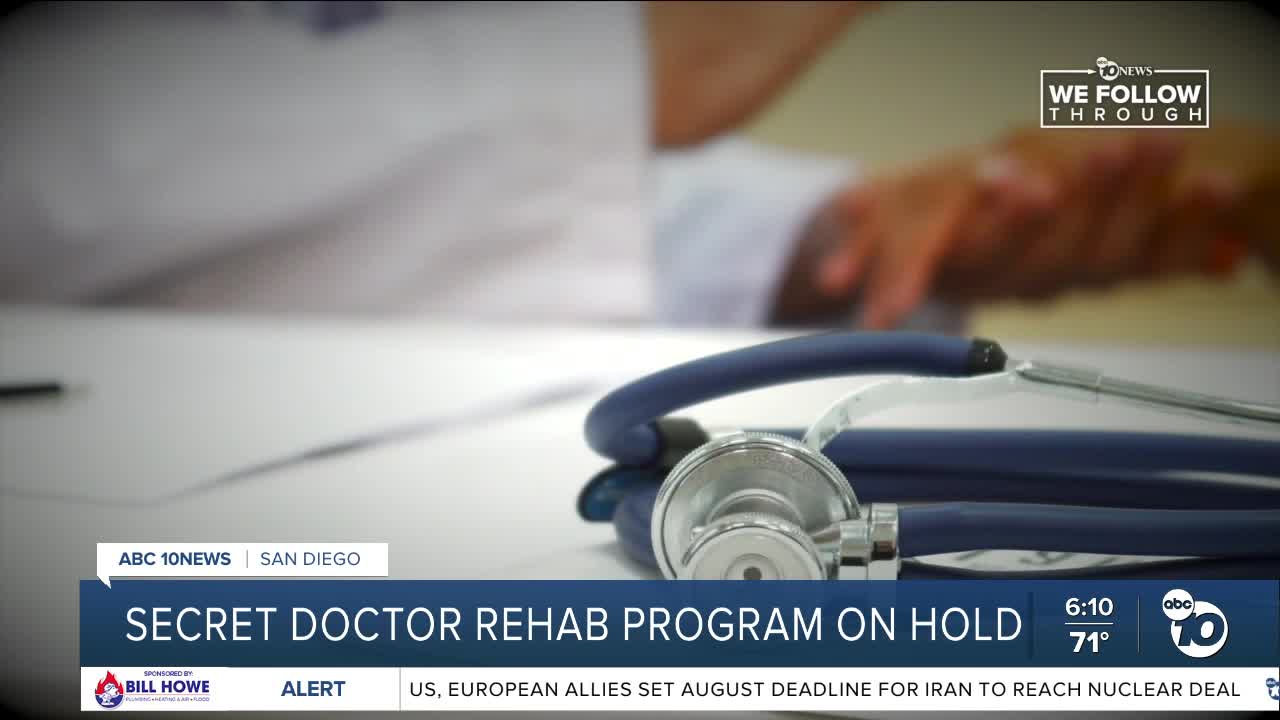SAN DIEGO, Calif. — A controversial bill that would allow doctors with substance abuse issues to enter a secret rehab program is now on hold following public backlash.
“It's a good day for patients. Concerns raised by patients and consumer advocates that this bill put patients' lives at risk were heard in the legislature and the bill was paused for the year,” said Carmen Balber, the executive director of Consumer Watchdog.
Assembly Bill 408 would allow the Medical Board of California to create a secret rehab program for doctors struggling with addictions.
If passed in its current form, the bill, introduced by Assemblymember Marc Berman, would overhaul the state’s physician health and wellness program.
- Proposed secret rehab program for doctors goes before state Senate
- Anesthesiologist keeps medical license after being caught high on the job
The medical board says the proposed program aims to get doctors with addictions who are currently working undetected into treatment before they harm a patient.

But Balber and other critics of the legislation say it will set California back decades by removing mandated public disclosure.
Right now, if a doctor has been found high or drunk on the job and a complaint is filed with the medical board and found to be true, the public can go online and find disciplinary information for that doctor.
Patient speaks out
That transparently would disappear if AB 408 became law. The bill would exempt doctors from the uniform standards required of all other licensed healthcare professionals in California and revive a canceled secret rehabilitation program that audits found had harmed patients.
Tina Minasian, a patient rights advocate, testified against the bill at a hearing earlier this month. She said she suffers from lifelong injuries from a substance-abusing surgeon who was a participant in the former confidential physician diversion program.
“I didn’t know the doctor I chose was secretly enrolled in a program meant to ‘help’ impaired physicians—but it was a system designed to protect him, not me. AB 408 would protect doctors from informing their patients of their participation in the new diversion program even if they relapse, like my doctor repeatedly did,” Minasian said in a press release.
Balber said Consumer Watchdog supports doctors who seek voluntary treatment who haven’t gotten on the medical board’s radar for misconduct.
“Where we really have a problem is when the board should be acting to discipline a doctor for doing things like doing drugs on the job, but they send them into treatment again and wash their hands of it. That puts patients at risk and should never happen.”
She believes the bill will be amended and go back in front of state lawmakers to review next summer.





